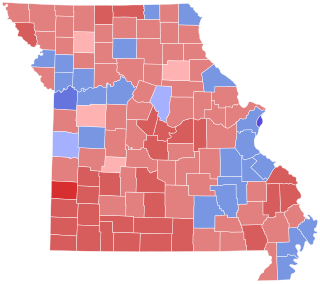
Since Hawaii became a state in 1959, it has sent congressional delegations to the United States Senate and United States House of Representatives. Each state elects two senators to serve for six years. Members of the House of Representatives are elected to two-year terms, one from each of Hawaii's congressional districts. Before becoming a state, the Territory of Hawaii elected a non-voting delegate at-large to Congress from 1900 to 1958.

John David Waiheʻe III is an American politician who served as the fourth governor of Hawaii from 1986 to 1994. He was the first American of Native Hawaiian descent to be elected to the office from any state of the United States. After his tenure in the governor's office, Waiheʻe became a nationally prominent attorney and lobbyist.

The 107th United States Congress was a meeting of the legislative branch of the United States federal government, composed of the United States Senate and the United States House of Representatives. It met in Washington, D.C., from January 3, 2001, to January 3, 2003, during the final weeks of the Clinton presidency and the first two years of the George W. Bush presidency. The apportionment of seats in this House of Representatives was based on the 1990 United States census.

Edward Espenett Case is an American lawyer and Democratic politician. Since 2019, he has served as the U.S. representative for Hawaii's 1st congressional district, which covers the urban core of Honolulu. He represented the 2nd district, which covers the rest of the state, from 2002 to 2007.

Patsy Matsu Mink was an American attorney and politician from the U.S. state of Hawaii. She served in the United States House of Representatives for 24 years as a member of the Democratic Party, initially from 1965 to 1977, and again from 1990 until her death in 2002. She was the first woman of color and the first Asian-American woman elected to Congress, and is known for her work on legislation advancing women's rights and education.

Patricia Hatsue Saiki is an American politician and former educator from Hilo, Hawaii. She served as a Republican in Congress from 1987 to 1991 and then as Administrator of the Small Business Administration under President of the United States George H. W. Bush.
Hawaii's 2nd congressional district is a congressional district in the U.S. state of Hawaii. It is represented by Jill Tokuda, who succeeded Kai Kahele after the 2022 election. The district encompasses all rural and most suburban areas of Oahu/Honolulu County, as well as the entire state outside of Oahu. It includes the counties of Kauai, Maui, Kalawao, and Hawaii. The district spans 331 miles. The most populous community entirely within the district is Hilo. Major segments of the economy include tourism, ranching, and agriculture.

The 2002 United States Senate elections featured a series of fiercely contested elections that resulted in a victory for the Republican Party, which gained two seats and thus a narrow majority from the Democratic Party in the United States Senate. The Senate seats up for election, known as class 2 Senate seats, were last up for regular election in 1996. The election cycle was held on November 5, 2002, almost fourteen months after the September 11, 2001 attacks.

Campbell "Cam" Cavasso, is an American politician, businessman and perennial candidate. A Republican, Cavasso served three terms in the Hawaii House of Representatives from 1985 to 1991, and would later run for both chambers of the United States Congress in 2004, 2010, 2014, and 2018.

The 2002 United States House of Representatives elections were held on November 5, 2002, in the middle of President George W. Bush's first term, to elect U.S. Representatives to serve in the 108th United States Congress. This was the first congressional election using districts drawn up during the 2000 United States redistricting cycle on the basis of the 2000 census.

Charles Kong Djou is an American politician who served as U.S. representative for Hawaii's 1st congressional district from 2010 to 2011. Djou won his House seat in a May 2010 special election. He was defeated in the November general election after the Democratic primary provided a single opponent. He ran for but did not win his old House seat again in 2012 and 2014. Djou, who previously served in the Hawaii House of Representatives and on the Honolulu City Council, was the first Thai American of any party and the first Chinese American Republican to serve in the U.S. House of Representatives. In June 2016, he entered the race for mayor of Honolulu, which he lost, 48% to 52%, to incumbent Kirk Caldwell. As of 2024, Djou is the last Republican to have represented Hawaii in Congress. He left the Republican Party in 2018 and in 2020 endorsed Joe Biden for president. After Biden won the presidency, he appointed Djou to be Secretary of the American Battle Monuments Commission.

Colleen Wakako Hanabusa is an American lawyer and politician who served as the U.S. representative for Hawaii's 1st congressional district from 2011 to 2015 and again from 2016 to 2019. A member of the Democratic Party, she ran for her party's nomination for governor of Hawaii in 2018, challenging and losing to incumbent and fellow Democrat David Ige.

The U.S. state of Hawaii is divided into two congressional districts for representation in the United States House of Representatives. Before statehood, the Territory of Hawaii was represented by a non-voting delegate. From statehood until 1963, Hawaii had one representative. From 1963 to the creation of the two districts in 1971, Hawaii was represented in the House with two representatives elected at-large statewide.

The 2002 United States Special Senate election in Missouri was held on November 5, 2002 to decide who would serve the rest of Democrat Mel Carnahan's term, after he died while campaigning and posthumously won the 2000 election. The winner would serve the remainder of the term ending in 2007. Governor Roger Wilson appointed Carnahan's wife Jean, also a Democrat, to serve temporarily. She then decided to run to serve the remainder of the term, but she was narrowly defeated by Republican nominee Jim Talent.

The 2010 special election for the 1st congressional district of Hawaii was a special election to the United States House of Representatives that took place to fill the vacancy caused by Representative Neil Abercrombie's resignation on February 28, 2010 to focus on his campaign for Governor of Hawaii in the 2010 gubernatorial election. Abercrombie planned not to run for re-election in 2010, and many of the candidates that were running for his open seat transferred to the special election. The election was held on May 22, 2010 and Republican Charles Djou won, defeating five Democrats, four fellow Republicans, and four Independent candidates. The main reason for his win was because there were two Democratic candidates instead of one, which split the votes, allowing Djou to win, as Hawaii is an overwhelmingly Democratic state. Djou became the only Republican elected to Congress from Hawaii since Pat Saiki in 1988; Djou volunteered on Saiki's 1988 campaign, and Saiki served as Djou's campaign chair in 2010.

The 1976 United States Senate election in Hawaii took place on November 2, 1976. Incumbent Republican U.S. Senator Hiram Fong did not seek re-election to a fourth term. Democrat Spark Matsunaga won the open seat by defeating Republican William Quinn.

Robert Charles McDermott is an American politician and Republican former member of the Hawaii House of Representatives who served from 1996 to 2002 and 2012 to 2022.

The 2022 United States Senate election in Hawaii was held on November 8, 2022, to elect a member of the United States Senate to represent the state of Hawaii. The primary took place on August 13.

The 2022 Hawaii gubernatorial election took place on November 8, 2022, to elect the next governor of Hawaii. Incumbent Democratic Governor David Ige was term-limited and ineligible to run for a third term. Incumbent lieutenant governor Josh Green was the Democratic nominee, and faced former lieutenant governor Duke Aiona, the Republican nominee. This marked the third time Aiona had been the Republican gubernatorial nominee, having previously run unsuccessfully in 2010 and 2014. Green won the election with 63.2% of the vote with Aiona receiving 36.8% of the vote.
There were two special elections to the United States House of Representatives in 2003 during the 108th United States Congress.

















